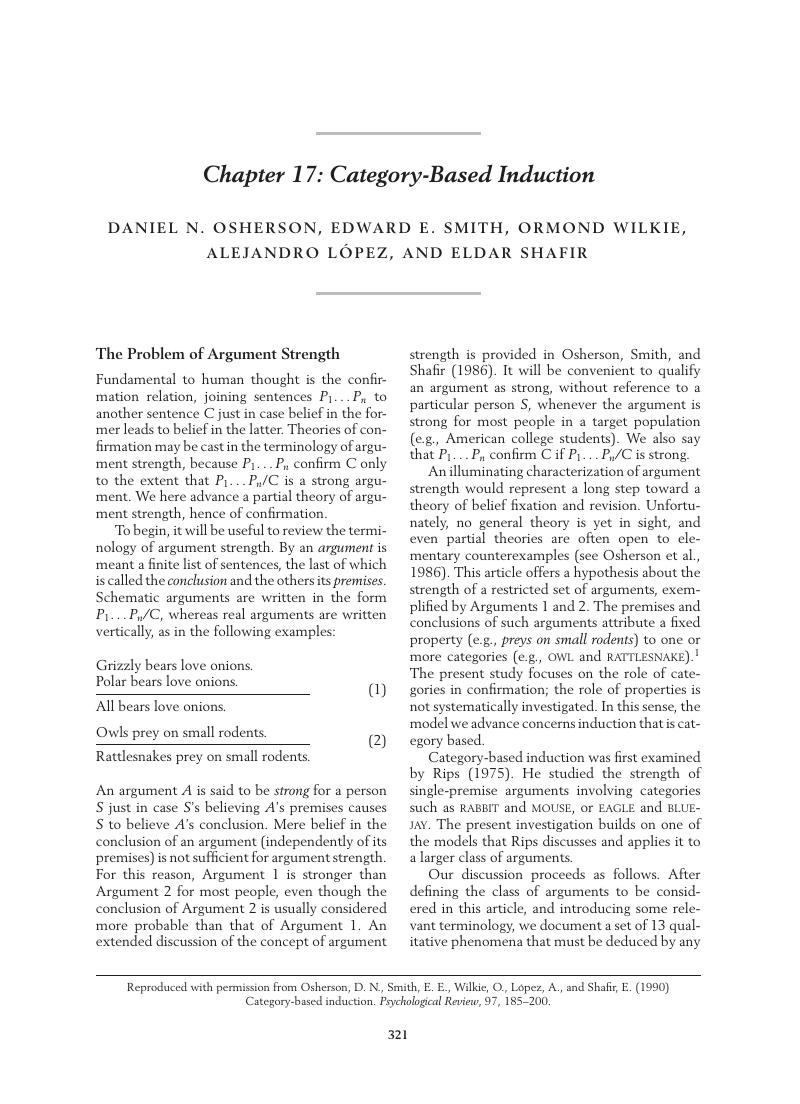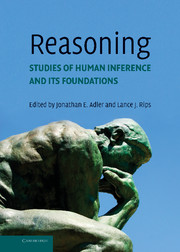17 - Category-Based Induction
Published online by Cambridge University Press: 05 June 2012
Summary

Information
- Type
- Chapter
- Information
- ReasoningStudies of Human Inference and its Foundations, pp. 321 - 342Publisher: Cambridge University PressPrint publication year: 2008
